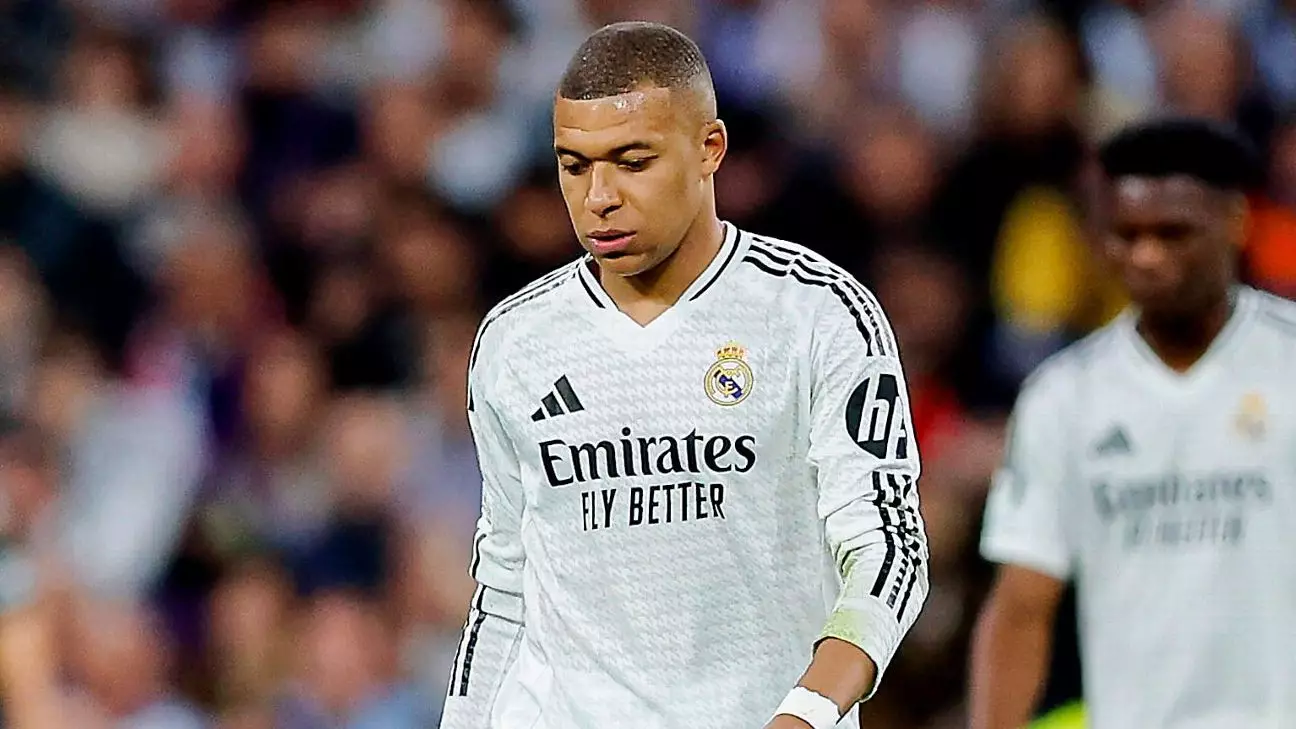Kylian Mbappé’s departure from Paris Saint-Germain (PSG) was anything but pleasant. He left the club amidst legal disputes and a myriad of tensions in pursuit of his ambitions at Real Madrid. Yet, the recent crowning of PSG as Champions League victors elicited a wave of joy from Mbappé, showcasing the complex emotions often tied to professional sports. Claiming to be elated for his former team, the narrative around his exit softens as he reflects on their monumental triumph against Inter Milan. It’s a testament to how competitive sports can intertwine joy and heartache, revealing the nuanced relationships players maintain with their former clubs.
Emotional Resonance in Football
Mbappé articulated the depth of his emotional connection to PSG, acknowledging the hurdles the club faced en route to their first Champions League title. “They deserved it,” he asserted, embodying a sense of camaraderie that often fades after a player’s exit. This sentiment reflects the intricate feelings athletes harbor for institutions that shaped their careers, despite experiencing personal conflicts during their tenure. The 5-0 against Inter not only highlighted PSG’s evolution into a formidable force in European football but also underscored the collective struggle and resilience that characterized their journey.
The Unfinished Business with Real Madrid
Despite a successful individual scoring record at Real Madrid, Mbappé’s time there has been riddled with disappointment as major trophies eluded him in the past year. This raises questions about success and fulfillment in sports; does one’s individual brilliance truly equate to success without collective achievements? In this regard, Mbappé’s narrative highlights a significant truth in professional athletics—the distinction between personal achievement and team success. While he could boast of a significant tally, the absence of silverware introduces a conflicting layer to his identity as an athlete.
A Unique Perspective on Moving Forward
Mbappé’s statements regarding his time at PSG bring into focus an important aspect of personal evolution in sports. “Did I leave too soon? No, my story was over,” he reflects, embodying a mature perspective that many athletes seldom possess. His journey is emblematic of the broader challenges faced in competitive sports, emphasizing that leaving behind a legacy does not always correlate with unresolved emotions. The maturity in his reflection may indicate a calculated move, suggesting that he is comfortable with the choices that have brought him to his current path, even amidst the shadows of legal disputes.
Recognition Beyond Numbers
Furthermore, as he endorsed Ousmane Dembélé for the Ballon d’Or, a subtle yet powerful narrative emerged—the importance of recognizing contributions beyond mere statistics. Mbappé’s preference for Dembélé reflects a burgeoning understanding within sports culture; recognizing players for their effort and impact on team dynamics is essential. It underscores the idea that greatness can manifest in numerous forms, not strictly through the lens of goals or assists. This insight enriches the dialogue around what constitutes a deserving accolade in sports, encouraging fans and analysts alike to appreciate the game in its full complexity.
Kylian Mbappé’s reflections reveal a landscape of triumph and trial, encapsulating the intricacies of emotions involved in professional football. His support for PSG’s success paints him as a figure rooted in complexity, where personal ambition and collective triumph often intertwine to create a story worth telling.

